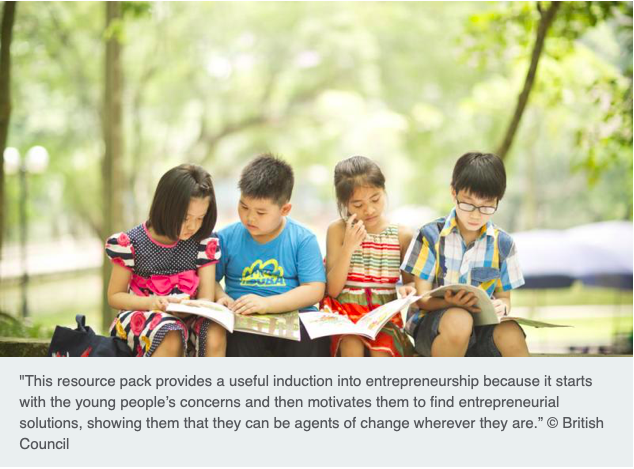Students as agents of change
The pack contains six principal lesson plans as well as suggestions for activities in the classroom and community. The activities spur students to think about social problems in their localities and further afield and the role that businesses and social enterprises can play in addressing them. As the lessons progress, students working in groups develop a business plan for their own social enterprise and the most promising of these plans is turned into a real social enterprise.
In Birmingham, for example, students, staff and parents at the Victoria Park Primary Academy run Ballot Street Spice, a social enterprise that roasts, grinds and blends spices by hand and sells original spice products and cooked foods. The social enterprise draws on the rich cultural and culinary heritage of the local area – whose residents speak over 40 different languages – in order to build community cohesion and offer real learning for young people. Ballot Street Spice is recognised by Ashoka as one of the most successful school based social enterprises in the UK and is credited by the school’s executive head as offering a strong model to promote social mobility in a disadvantaged community.
Beneficial outcomes
According to the Social Enterprise Academy, “establishing a social enterprise engages young people in the practical and creative skills required to run a viable business, develops their skills for learning, life and work and enriches their sense of social justice.”















Your article helped me a lot, is there any more related content? Thanks!